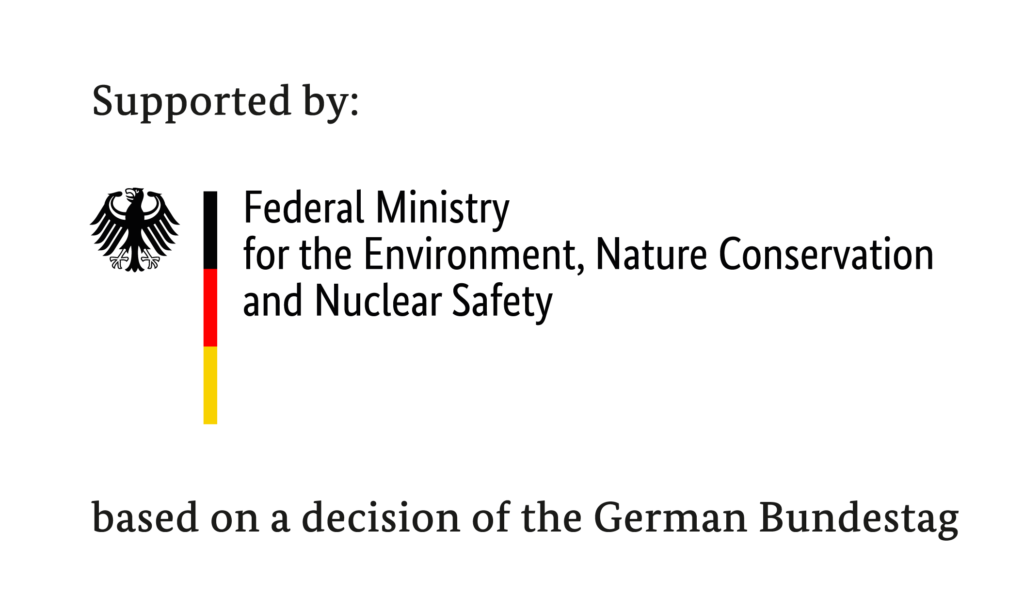The project phases of LoKlim
Phase 1: Development
In the first phase of the project, the vulnerability maps and locally-specific adaptation pathways will be developed by the university. The vulnerability maps will enable the locally-specific analysis of climate stressors and socio-economic indicators to capture potential local impacts of climate change.
The adaptation pathways will capture institutional frameworks and responsibilities for climate change adaptation, develop ideal multi-level governance models, and illustrate pilot development through process flows. The tools will be evaluated and validated through an expert workshop and empirical comparison in the pilots.
Phase 2: Implementation
In the second phase of the project, the developed vulnerability maps and models are implemented in the municipalities and districts during three on-site workshops.
In addition, regular project and network meetings will be held as a structured opportunity for exchange, learning and collaborative development of administrative adaptation capacities. Finally, practical seminars are offered for the employees of the departments in the municipalities and districts to convey and develop practical expertise.
The project components in detail
1. Climate vulnerability maps
Developing the climate vulnerability maps is the first step of the project. By means of locally-specific analyses of climate stressors and socio-economic indicators, information on potential local impacts of climate change will be aggregated and visualized in a descriptive way. The analyses will show on a small scale (municipal level) how, according to the current state of knowledge, different climate stressors can occur in a locally differentiated manner and, in connection with socio-economic factors, can result in different levels of sensitivity. The aim is to group municipalities in Baden-Württemberg into clusters with similar types of climate change impacts.
2. Models for location-specific adaptation pathways
The development of models for location-specific adaptation pathways for the clusters identified in the pilot municipalities and districts is the main focus of the project. It includes the identification of institutional frameworks and responsibilities for climate change adaptation by means of a comprehensive literature review, the elaboration of ideal multi-level governance models of process flows, and the pilot development of locally-specific adaptation pathways including recommendations for specific actions.
3. Empirical comparison
To start the work process with the pilot municipalities and districts, an empirical comparison of the developed top-down climate impacts and models on the basis of local experiences of the actors involved in the project (as a transdisciplinary bottom-up process) is conducted. This includes the documentation of local strategies for dealing with climate risks on the basis of the systematic evaluation of damage events as well as the assessment of endogenous municipal adaptive capacities through focus groups in the pilot municipalities and districts participating in the project.
4. Expert workshop
An expert workshop for the validation of the integrated models serves the further examination of the developed models with the participating experts from planning practice on their suitability for the application in the clusters. The expert workshops will take place as part of the planned project and network meetings and will involve both the project advisory board and experts from the network municipalities.
5. Implementation in municipalities and districts
The implementation in the pilot municipalities and districts represents the central application-oriented part of the project. Implementation takes place during four on-site workshops. Based on the experience with this implementation process, the vulnerability maps and adaptation models will be continuously developed and refined.
6. Project and network meetings
The project and network meetings aim to provide regular meetings for the administrative professionals from the pilot municipalities and districts and the network partners within the project as structured opportunities for exchange and learning. The meetings aim at the collaborative development of administrative adaptation capacities through both methodological and content exchange. In order to ensure the continuation of the network beyond the project duration, the formal establishment of a Community of Practice “Municipal Climate Change Adaptation” is suggested in the context of the network meetings, which will be located at one of the participating institutions and will seek external funding for a secretariat to organize further professional events, exchange meetings, etc.
7. Practical seminars
The practical seminars contribute to the formation of multipliers by imparting and elaborating practice-oriented expert knowledge for the employees of the specialized departments in the municipalities and districts. The project results from the pilot municipalities and districts are incorporated into the practical seminars.
